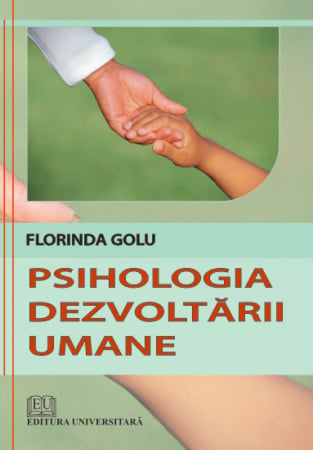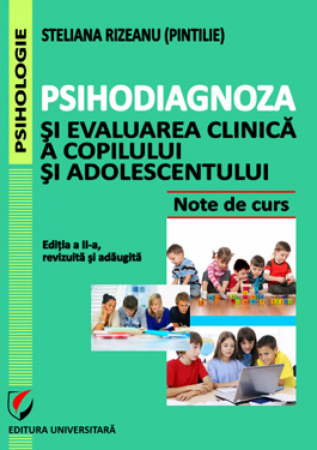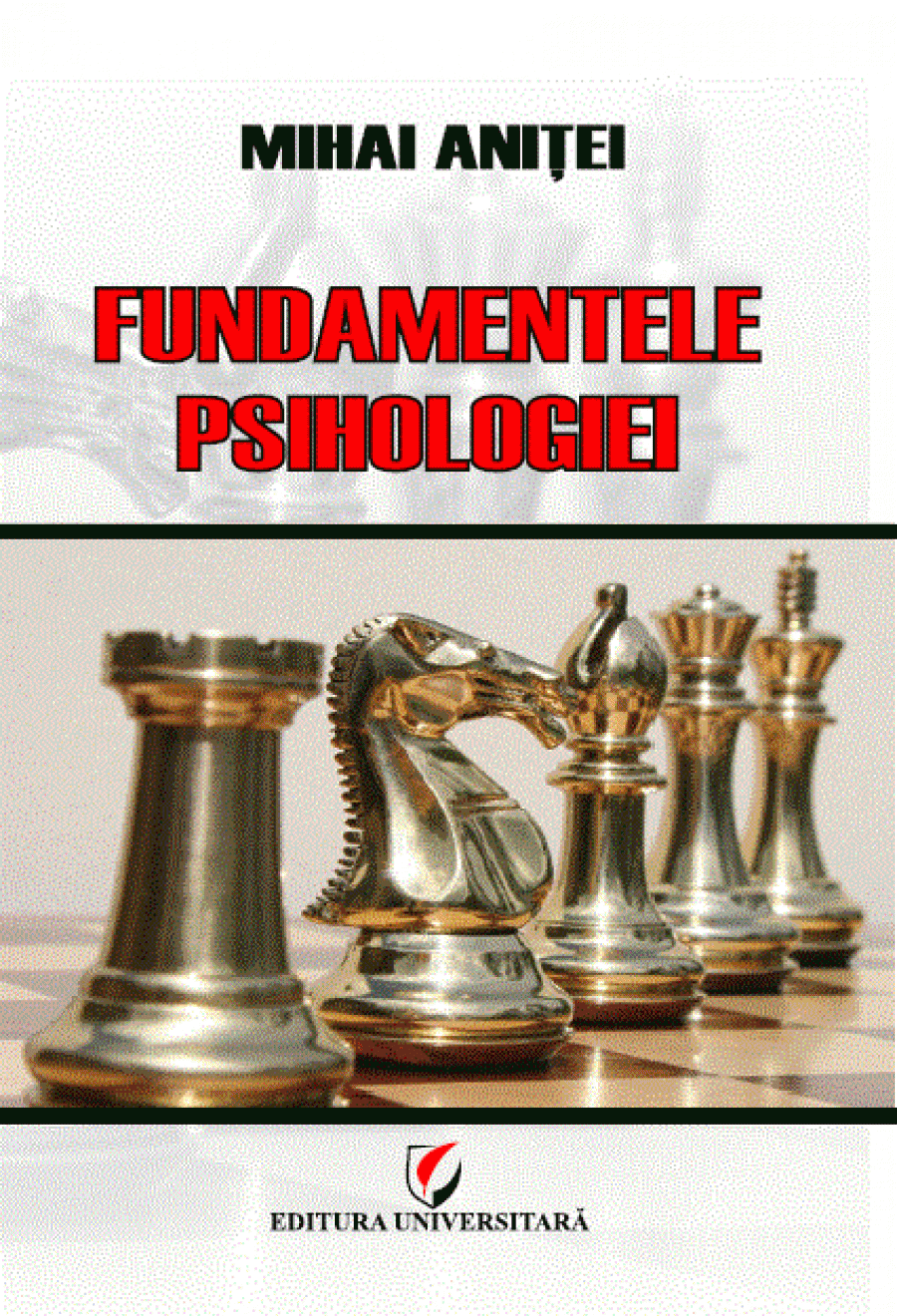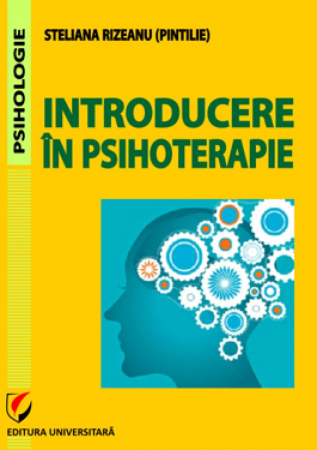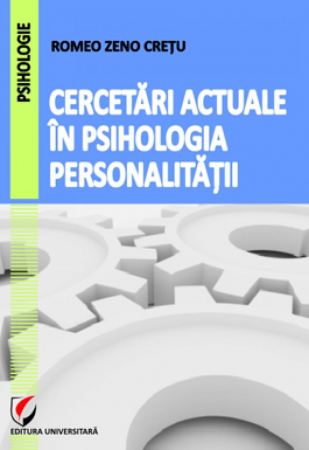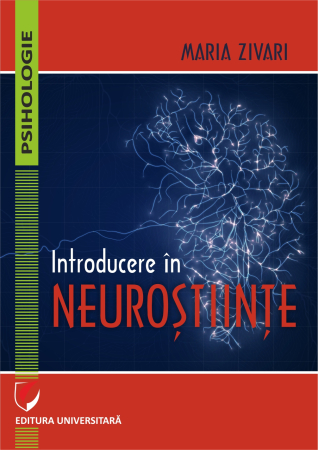Manuscript proposals: [email protected] / 0745 204 115 //// Tracking orders Individuals / Sales: 0745 200 357 / Orders Legal entities: 0721 722 783
Publisher: Editura Universitară
Author: Andrei-Ionel Mocanu, Bianca Stincan
Edition: I
Pages: 192
Publisher year: 2023
ISBN: 978-606-28-1601-8
DOI: https://doi.org/10.5682/9786062816018
Product Code:
9786062816018
Do you need help?
0745 200 357
- Description
- Download (1)
- Authors
- Content
- More details
- Reviews (0)
From the professional training experiences that I have facilitated over the years with professional colleagues in the field of children's education and health, there has never been a lack of recommendations related to the development of emotional management and social relationship skills, knowing that they represent a basis essential for the healthy, authentic and autonomous functioning of any human being. There is a critical volume of scientific evidence that shows us how important knowing and managing emotions as well as relationships with those around us are for the quality of our lives. We also know that without these skills, it is very difficult for us to break through life, with confidence and resilience, no matter how many cognitive or financial resources we have at our disposal and no matter how good our academic results have been throughout school years.
Although these skills are essential for the quality of our lives and our emotional health, they do not develop naturally. It takes attention and conscious effort to grow a human being in contact with one's own needs and emotions, capable of initiating and maintaining warm interpersonal relationships, with connection, empathy, respect for the needs of others, but attention and care for personal needs at the same time .
What science and practice alike teach us, is that the early years, preschool and primary grades, represent optimal periods of development in which children are extremely prepared to learn and practice social functioning and emotional management. Functioning in the school environment, in class and during breaks, meetings in the park at parties or playgrounds, camps, are all contexts in which children spend time together, in more or less structured, simpler or more complex activities , with different rules and objectives. These are the perfect situations in which children become aware of their own needs and those of others, experience all kinds of emotional responses when meeting the rules, requests, limits of the context or of other children and are forced to make decisions and use different strategies to work together. Some will be overwhelmed, some will withdraw, others will behave aggressively towards those around them, objects or their own person, some will block, others will cry, some will negotiate, others will look for solutions - all these courts are opportunities to awareness, learning, consolidation, change, flexibility of emotional and social responses that will gradually help children to function more and more healthily, authentically and adaptively, with care and respect for their own physical and emotional safety and those around them.
But the careful and wise guidance of the adults around the children is needed for all these things to happen. I mentioned at the beginning of this confession that the recommendations related to the development of children's emotional management and social relationship skills were most frequently offered by me in the professional training experiences I facilitated. The question "How do we do this?" came up just as frequently.
The manual developed with inspiration and scientific rigor by Andrei and Bianca, offers complex answers to this question. It is a valuable collection of concrete resources made available to professionals in the field of education and children's health, who will find inside this book suggestions for varied and funny, interactive and playful activities for primary school children, as well as recommendations for processing these experiences together with the children, so that they gradually internalize the messages and methods of actions practiced.
I am confident that any child who will be involved in any of these activities will benefit from the valuable messages woven into the scenarios proposed by the authors and any professional who accesses this manual will discover a useful, pleasant and effective tool for improving the quality of social relationships within groups of children he guides.
Diana Stanculeanu
National expert in mental health
Although these skills are essential for the quality of our lives and our emotional health, they do not develop naturally. It takes attention and conscious effort to grow a human being in contact with one's own needs and emotions, capable of initiating and maintaining warm interpersonal relationships, with connection, empathy, respect for the needs of others, but attention and care for personal needs at the same time .
What science and practice alike teach us, is that the early years, preschool and primary grades, represent optimal periods of development in which children are extremely prepared to learn and practice social functioning and emotional management. Functioning in the school environment, in class and during breaks, meetings in the park at parties or playgrounds, camps, are all contexts in which children spend time together, in more or less structured, simpler or more complex activities , with different rules and objectives. These are the perfect situations in which children become aware of their own needs and those of others, experience all kinds of emotional responses when meeting the rules, requests, limits of the context or of other children and are forced to make decisions and use different strategies to work together. Some will be overwhelmed, some will withdraw, others will behave aggressively towards those around them, objects or their own person, some will block, others will cry, some will negotiate, others will look for solutions - all these courts are opportunities to awareness, learning, consolidation, change, flexibility of emotional and social responses that will gradually help children to function more and more healthily, authentically and adaptively, with care and respect for their own physical and emotional safety and those around them.
But the careful and wise guidance of the adults around the children is needed for all these things to happen. I mentioned at the beginning of this confession that the recommendations related to the development of children's emotional management and social relationship skills were most frequently offered by me in the professional training experiences I facilitated. The question "How do we do this?" came up just as frequently.
The manual developed with inspiration and scientific rigor by Andrei and Bianca, offers complex answers to this question. It is a valuable collection of concrete resources made available to professionals in the field of education and children's health, who will find inside this book suggestions for varied and funny, interactive and playful activities for primary school children, as well as recommendations for processing these experiences together with the children, so that they gradually internalize the messages and methods of actions practiced.
I am confident that any child who will be involved in any of these activities will benefit from the valuable messages woven into the scenarios proposed by the authors and any professional who accesses this manual will discover a useful, pleasant and effective tool for improving the quality of social relationships within groups of children he guides.
Diana Stanculeanu
National expert in mental health
-
Know yourself! Games and personal development activities for children (6-11 years)
Download

I am ANDREI IONEL MOCANU, Flavia's father, the author of the book series "On children's understanding of emotions" and a psychologist by profession. I have over 15 years of experience working with children and their families, and in my free time I write for parents and specialists on tatalactiv.ro in an attempt to share every day a little of all the things I have discovered so far about children. I like to work both with the little ones, but also with the big ones (parents or teachers) in the most informal way possible. Until now, I have organized hundreds of groups for children on various topics, training courses for teachers on topics such as behavior management, personal development or bullying and I have held thousands of hours of personalized therapy.

I am BIANCA STINCAN, Lara's mother and a psychologist, and for over 10 years I have been dedicated to children, their emotions and needs. The professional path and the diversity of the environments in which I worked (school counseling, training for teachers, individual psychological counseling) brought me valuable knowledge both in approaching children and teaching staff. I really like to be among children, to be charged with their energy, to get to know them and to be their support in getting to know each other and understanding their own behavior. In this sense, I think that the easiest way to reach them is through play and by appealing to gentleness, humor and empathy.
FOREWORD / 7
FOREWORD / 11
DISCHARGE GAMES / 13
KNOWLEDGE AND SELF-KNOWLEDGE / 41
DEVELOPMENT OF EMOTIONAL SKILLS / 69
DEVELOPMENT OF SOCIAL SKILLS / 100
CONSOLIDATION OF THE GROUP / 133
APPENDIX 1. About me - associations / 169
APPENDIX 2. Knowledge test / 170
APPENDIX 3. Top 3 / 172
APPENDIX 4. Journalist's file / 174
APPENDIX 5. Complete the list / 175
APPENDIX 6. What do I think? What I feel? / 177
APPENDIX 7. Diary of emotions / 179
APPENDIX 8. Storm / 181
APPENDIX 9. Letter to a colleague / 183
APPENDIX 10. Types of communication / 184
APPENDIX 11. Comics (Conflict Resolution) / 187
FOREWORD / 11
DISCHARGE GAMES / 13
KNOWLEDGE AND SELF-KNOWLEDGE / 41
DEVELOPMENT OF EMOTIONAL SKILLS / 69
DEVELOPMENT OF SOCIAL SKILLS / 100
CONSOLIDATION OF THE GROUP / 133
APPENDIX 1. About me - associations / 169
APPENDIX 2. Knowledge test / 170
APPENDIX 3. Top 3 / 172
APPENDIX 4. Journalist's file / 174
APPENDIX 5. Complete the list / 175
APPENDIX 6. What do I think? What I feel? / 177
APPENDIX 7. Diary of emotions / 179
APPENDIX 8. Storm / 181
APPENDIX 9. Letter to a colleague / 183
APPENDIX 10. Types of communication / 184
APPENDIX 11. Comics (Conflict Resolution) / 187
Children have to show and tell stories, maybe more than they need to listen.
They do this by the way they hold hands or not, by the way they walk, run or jog, by the way they lean forward or stand aside, by the way they just smile or laugh heartily, by the way they who look at each other and look at others, by the way they call each other by name and call each other to play and play.
Children have to show and tell stories about themselves.
Adults have stories to see and listen to, maybe more than they need to tell.
Stories about the unexplored or under-exploration frontiers of the human being, stories made up only of questions asked or not asked, stories loaded with emotions, searches, struggles, stories about the desire to be big overnight.
Adults can see and listen to stories told by children. Why?
Because the adults are responsible for the way the little ones grow and learn.
For this, it is necessary to create special contexts, full of movement, fun and color, such as game moments.
Play is the natural activity through which children learn the easiest.
Games allow adults (parents, grandparents, teachers, etc.) to identify children's predispositions, inclinations, interests, but also the domains, sequences, aspects or elements of the social and natural environment to which they are attracted and towards which they show their curiosity.
This collection is a resource born from the needs of adults to create such contexts to listen to stories told by children. It is valuable because the examples are validated by the little ones: "Bianca, we want more! Andrei, were we still playing Semaphore? We want in the parking lot!"
The friendship, empathy, kindness, compassion, cooperation, joy of Impreuna are practiced naturally and leave traces in the memories gathered day by day of those who will grow like water.
You never know with which game you will touch a sensitive chord and open a new door in your soul or mind.
If you do not know how you could do this, you have before your eyes possible keys.
To inspire you!
Daniela Stoicescu
Educational Expert
They do this by the way they hold hands or not, by the way they walk, run or jog, by the way they lean forward or stand aside, by the way they just smile or laugh heartily, by the way they who look at each other and look at others, by the way they call each other by name and call each other to play and play.
Children have to show and tell stories about themselves.
Adults have stories to see and listen to, maybe more than they need to tell.
Stories about the unexplored or under-exploration frontiers of the human being, stories made up only of questions asked or not asked, stories loaded with emotions, searches, struggles, stories about the desire to be big overnight.
Adults can see and listen to stories told by children. Why?
Because the adults are responsible for the way the little ones grow and learn.
For this, it is necessary to create special contexts, full of movement, fun and color, such as game moments.
Play is the natural activity through which children learn the easiest.
Games allow adults (parents, grandparents, teachers, etc.) to identify children's predispositions, inclinations, interests, but also the domains, sequences, aspects or elements of the social and natural environment to which they are attracted and towards which they show their curiosity.
This collection is a resource born from the needs of adults to create such contexts to listen to stories told by children. It is valuable because the examples are validated by the little ones: "Bianca, we want more! Andrei, were we still playing Semaphore? We want in the parking lot!"
The friendship, empathy, kindness, compassion, cooperation, joy of Impreuna are practiced naturally and leave traces in the memories gathered day by day of those who will grow like water.
You never know with which game you will touch a sensitive chord and open a new door in your soul or mind.
If you do not know how you could do this, you have before your eyes possible keys.
To inspire you!
Daniela Stoicescu
Educational Expert
If you want to express your opinion about this product you can add a review.
write a review

6359.png)
![Know yourself! Games and personal development activities for children (6-11 years) [1] Know yourself! Games and personal development activities for children (6-11 years) [1]](https://gomagcdn.ro/domains/editurauniversitara.ro/files/product/large/vreau-sa-te-cunosti-jocuri-si-activitati-de-dezvoltare-personala-pentru-copii-6-11-ani-492096.jpg)
